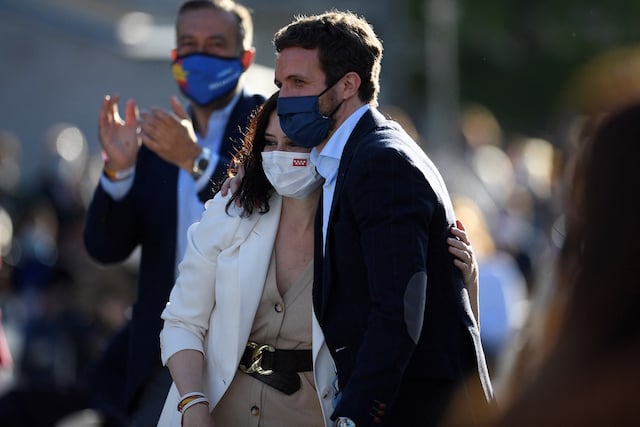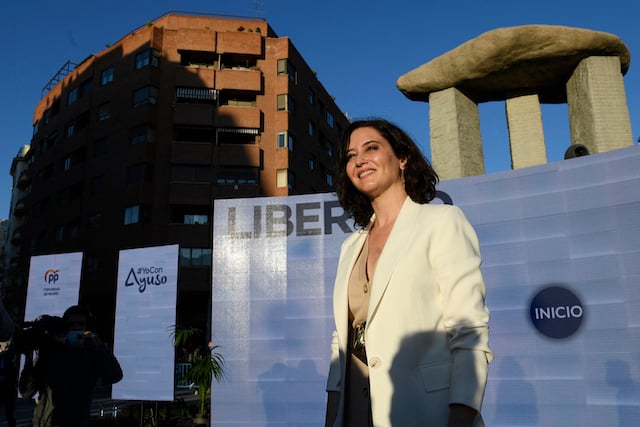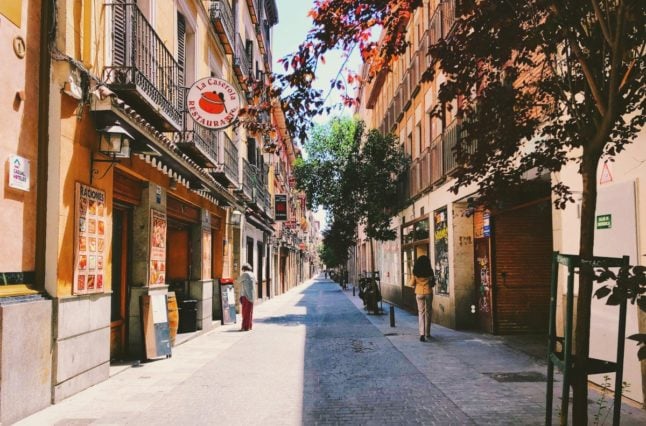If the latest polls are correct, the May 4th vote looks set to hand victory to the region’s right-wing leader Isabel Díaz Ayuso, whose Popular Party (PP) could end up governing with the support of the far-right Vox.
The vote could have important ramifications for Spain’s broader political scene, and particularly for the political future of some of the leaders involved, although analysts say it’s unlikely to have an immediate impact on the left-wing coalition of Socialist Prime Minister Pedro Sánchez.
Sunday marks the start of a two-week election campaign that ends on May 2nd, two days before the snap election which was called on March 10th by Ayuso after she abruptly broke off her coalition agreement with the centre-right Ciudadanos party.
At stake is the “jewel in the crown” – leadership of Spain’s richest region, with a population of 6.6 million, but which has suffered the most deaths and infections since the coronavirus epidemic began in March 2020.
Six parties are contesting the vote: the PP, the Socialists and the far-left Podemos – partners in Spain’s minority ruling coalition – Ciudadanos, Vox and the hard-left Mas Madrid, with surveys consistently
putting Ayuso in front.
Most polls suggest the 42-year-old will secure around 40 percent of the vote and a comfortable win, with a survey published on Friday, April 16th, giving her 56-57 deputies in the 136-seat regional assembly, while falling short of the 69 needed for an absolute majority.
READ ALSO: Meet the woman who has become the Spanish right’s sharpest critic of PM Sanchez
Seats are attributed on a proportional basis, but a party needs to get five percent of the ballots to have seats.
With Ciudadanos not assured of reaching this critical five percent threshold, the PP’s natural bedfellow would be Vox, which was seen securing 13-14 seats, with a tie-up likely securing them a majority.
“Polls suggest the right-wing bloc would get approximately 52-53 percent of the vote, but there could be last-minute shifts that could end up tipping the balance,” Pablo Simon, a political scientist at Madrid’s Carlos III University, told AFP.
“A very likely option is that the PP will govern alone (in a minority) with Vox’s parliamentary support, but without them holding public office.”

‘Communism or freedom’
The vote comes at a tricky time for Ayuso as infections keep rising in Madrid, which has a 14-day incidence rate of some 350 cases per 100,000 inhabitants, compared with a national average around 200, and accounts for 20 percent of Spain’s 76,900 deaths.
Known for her fierce opposition to Sánchez’ government, Ayuso called the election in an apparent bid to shore up political capital she has earned through resisting pressure to impose tighter virus restrictions on the local economy.
Just days after Ayuso’s election call, Podemos leader Pablo Iglesias dropped his own political bombshell, saying he would resign as deputy prime minister to run in the election.
From the start, Ayuso, who is seen as a rising star within the PP, has framed the May 4th polls as a choice “between Communism or freedom” and tried to give the election national overtones, helped by Sánchez’ personal involvement in the campaign and Iglesias’ decision to throw his hat into the ring.
“A very important unknown is voter turnout… which is likely to be high because the campaign is very polarised, but we’re also in a pandemic, which could change things,” Simon said.
All six candidates will make a direct appeal to voters during a live televised election debate on April 21st.
In the last poll, two years ago, the PP suffered its worst defeat in decades, although Ayuso was handed a lifeline when the Socialists, who won most of the votes, were unable to form a coalition.
Simon said the outcome was unlikely to impact on Sánchez’s coalition. “If the PP gets a really good result, it will rise in the polls and obviously… it won’t be in (Sánchez’s) interest to break up the government or call elections,” he said.
And with Spain’s economic recovery likely to be delayed until the year’s end or even early next year, the government would “try to hold out” until that was consolidated, which would give them “more of a chance to achieve a good result in an election.”
READ ALSO: Madrid’s divisive leader Ayuso quits and calls early regional election



 Please whitelist us to continue reading.
Please whitelist us to continue reading.
Member comments